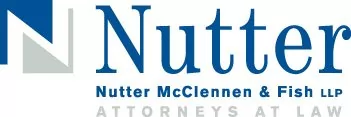The Defend Trade Secret Act of 2016 (DTSA) was passed on April 4, 2016 by the Senate, and on April 27, 2016 by the House of Representatives. There is no change between the House (H.R. 3326) and the Senate (S. 1890) versions. President Obama is expected to sign the DTSA very soon.
The DTSA provides for the first time a federal civil remedy for the misappropriation of trade secrets. Before the DTSA, only criminal charges for trade secret theft were available in federal court. Currently, civil action for trade secret violation is mainly governed by the Uniform Trade Secrets Act (UTSA), which is adopted by 47 states (only New York, North Carolina, and Massachusetts have not adopted it, although North Carolina has a similar act). Accordingly, a trade secret owner often brings the Computer Fraud and Abuse Act (CFAA) claims to get into the federal court instead of the state court. The purpose of the DTSA is to provide uniformity in trade secret protection by amending chapter 90 of 18. U.S.C. (particularly § 1836 and § 1839).
Compared with the UTSA, the DTSA has several major differences. The most controversial provision of the DTSA is permitting ex parte seizure of property when "necessary to prevent the propagation or dissemination of the trade secret that is the subject of the action." That is, a trade secret owner may request the court to order seizure of property without any prior notice to the other party.
However, the bill limits the seizure "only in extraordinary circumstances," and addresses in detail the requirements for issuing the civil seizure order. The trade secret owner has a burden of proof to show that "an immediate and irreparable injury will occur if such seizure is not ordered," and that "the harm to the applicant of denying the application outweighs the harm to the legitimate interests of the person against whom seizure would be ordered . . . and . . . to any third parties." The owner also shall show that he is likely to succeed in showing that the other party misappropriated the trade secret.
The DTSA further provides a party a cause of action if the party "suffers damage by reason of a wrongful or excessive seizure." The party is entitled to recover relief, including "damages for lost profits, cost of materials, loss of good will, and punitive damages in instances where the seizure was sought in bad faith." The court may allow recovering a reasonable attorney's fee, "unless the court finds extenuating circumstances."
Even with the careful writings of the bill, some concerns have been raised. Critics of the DTSA argue that the ex parte provision is vague and it may harm small businesses, startups and other innovations. The DTSA does not make it clear what constitutes "a wrongful or excessive seizure." Until it is understood how the court interprets the law, a trade secret owner needs to be careful not to be liable for his too aggressive action.
In addition to ex parte seizure, the DTSA provides other remedies, including an injunction to prevent a misappropriation, damages for actual loss or unjust enrichment, or reasonable royalty. If the trade secret is "willfully and maliciously misappropriated," the court may decide to increase damages by not more than two times and/or awarding reasonable attorney's fees. Notably, the injunction does not "prevent a person from entering into an employment relationship." The DTSA provides a three year statute of limitations, which is same as the UTSA.
Furthermore, the DTSA details the definition of "the public" to "another person who can obtain economic value from the disclosure or use of the information." It also provides definitions of the terms 'misappropriation' and 'improper means.'
The DTSA introduces a biannual report on theft of trade secrets occurring abroad. The report is to include the scope and breadth of the theft of the trade secrets, the extent to which the theft is sponsored by foreign governments, foreign instrumentalities, or foreign agents, and the threat posed by the theft of trade secrets. The report will also include recommendations on how to reduce the threat and impact of the theft occurring abroad.
The other crucial point with the DTSA is that it does not preempt existing federal or state laws. That is, a trade secret owner may pursue actions in the federal court and/or the state court. Since, the UTSA has been adopted by the most of the states and there are more than 100 years of case law in the state court, this still may be an attractive option. In contrast, it will take some time for the federal court to develop its own interpretations of the DTSA. It is expected that the DTSA will increase the number of trade secret suits in the federal court, due to its increased damages and availability of ex parte seizure.
Originally published on May 9, 2016
This update is for information purposes only and should not be construed as legal advice on any specific facts or circumstances. Under the rules of the Supreme Judicial Court of Massachusetts, this material may be considered as advertising.



